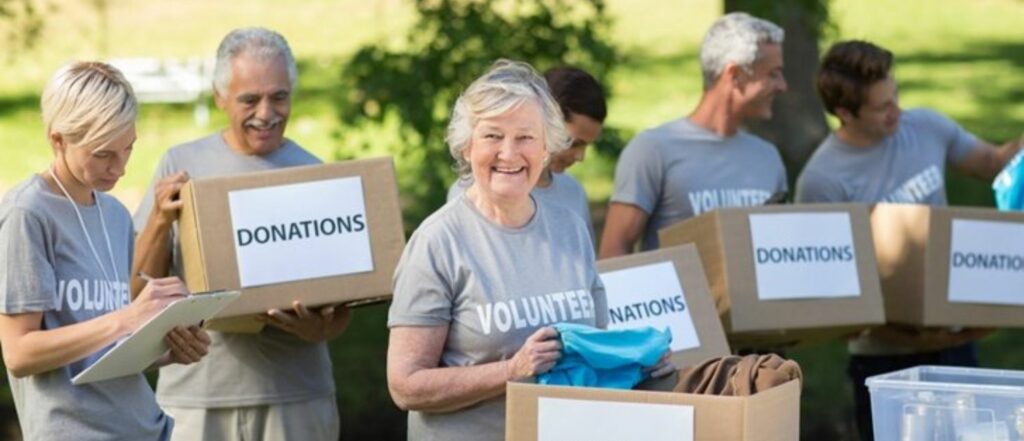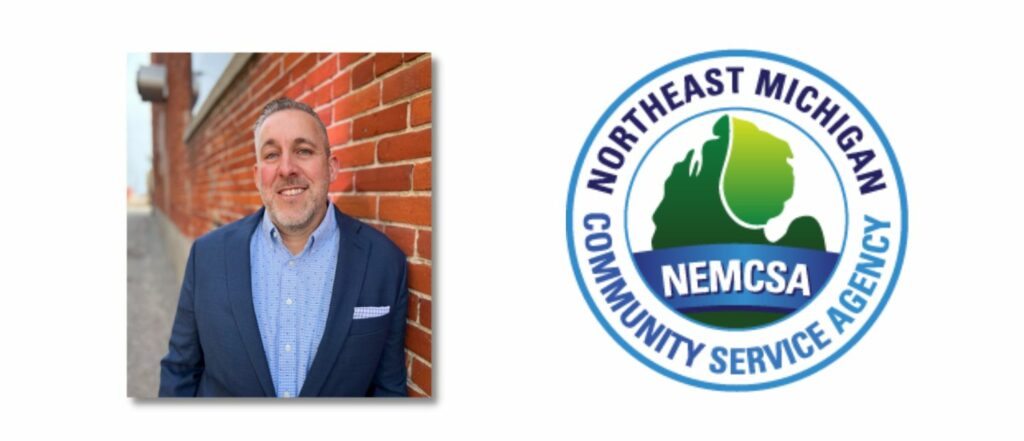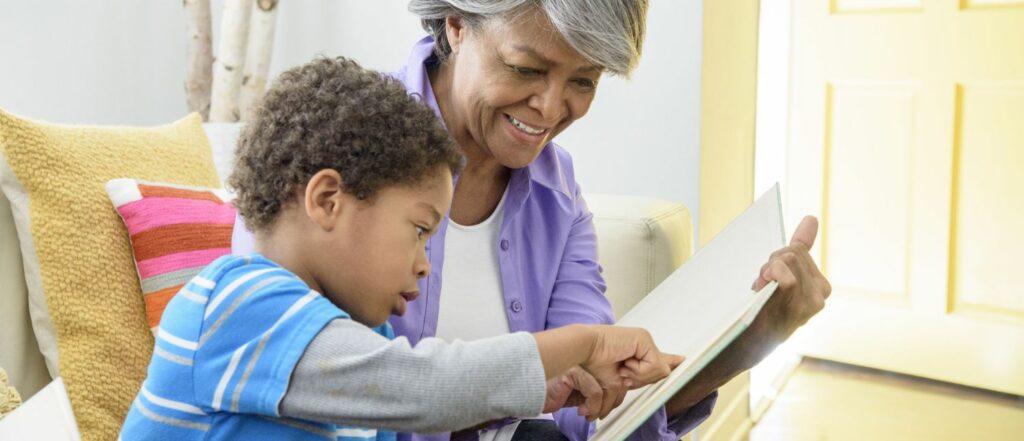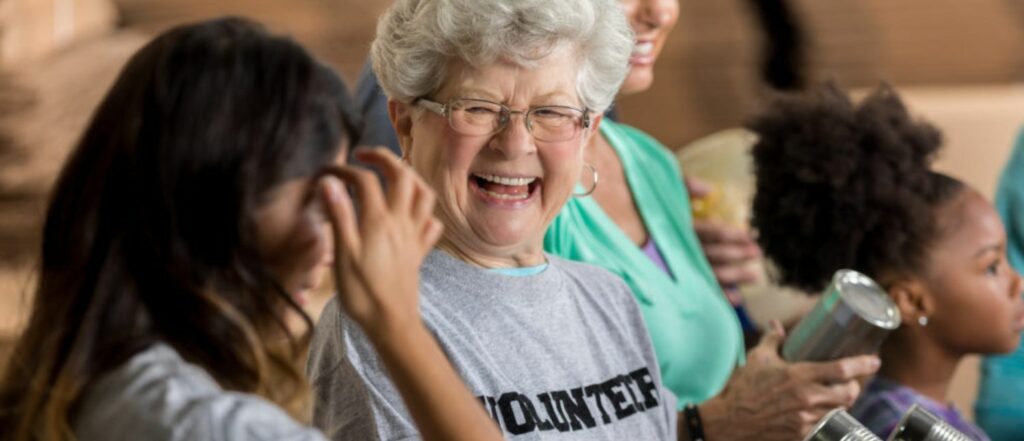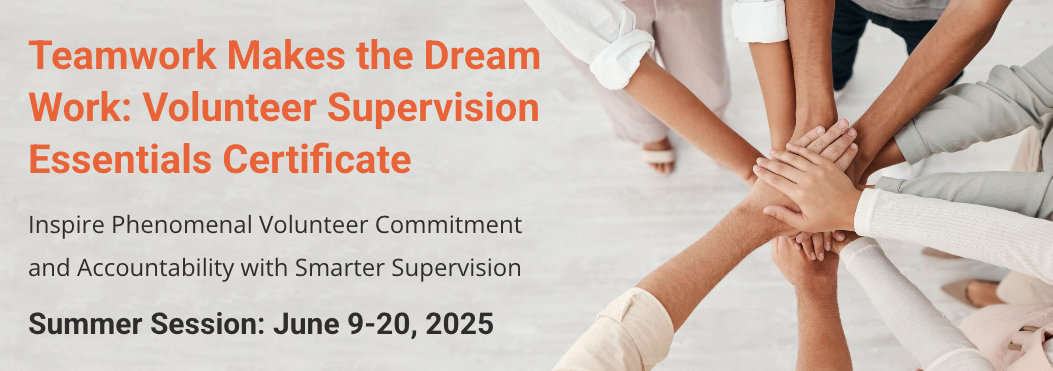Believing in the Mission of Helping Senior Volunteers
After serving the country for twenty-two years in the United States Coast Guard, VolunteerPro member Rick Houchin retired and set a new course for leading volunteers.
Rick currently serves in dual roles as the Project Director for an AmeriCorps Senior Retired and Senior Volunteer Program at a community action agency, the Northeast Michigan Community Service Agency.
VolPro’s Community Manager Chelsey Banaskavich recently had a conversation with Rick about his volunteer program.
Member Profile: Rick Houchin, Northeast Michigan Community Service Agency
Chelsey: How did you get started with VolunteerPro?
Rick: I started with VolunteerPro back in 2019, when the Michigan Community Service Commission offered fellowship positions. One of the benefits was a membership with VolunteerPro and I absolutely loved my time.
I let my membership expire thinking I would get around to it, and now I am back. I will probably never leave again.
Chelsey: That’s great news, welcome back!
Chelsey: Tell me a little bit about your organization, Northeast Michigan Community Service Agency.
Rick: We are a nonprofit community action agency in Northeast Michigan. We have a core area of 11 counties covering 6,300 square miles.
Our main job, so to speak, is we support those in our communities struggling in poverty and otherwise just disadvantaged, throughout the entire age spectrum from preschool to elderly.
We have over 30 programs and 600 employees across this region. Some of our programs are homelessness prevention, emergency food programs, senior programs, weatherization programs, and other social services programs.
Our mission is helping people get back up on their feet, enhancing the quality of life by empowering individuals and strengthening our communities.
Senior Volunteering is a Win-Win for Participants and the Community
Chelsey: How do your volunteers impact your programs?
Rick: Volunteers have a choice when they come to our agency to serve here, or volunteer through the AmeriCorps Senior program.
We bring in senior volunteers, 55 and older, who are looking to volunteer and give back time in their community. And then we can either place them with other nonprofits in the region to help those organizations in our communities, or they can choose to serve in one of our programs.
Our program is unique in that way of direct service volunteers, and also serving as a conduit to connect volunteers with other nonprofits.
When I first got here, I was like, “Why are we taking in volunteers and giving them to everybody else?” We’re kind of in the middle ground now, where we will never force somebody to serve with us.
If the volunteer would rather serve with the humane society or with a senior center or with the United Way, we will help pave the way for that.
Chelsey: That’s really neat that you can help senior volunteers find the best opportunity for them, if not with your organization, then with another in your area.
Rick: Yeah, as an AmeriCorps senior program, the retired and senior volunteer program we serve as a sponsoring agency, partnering with other nonprofits in eleven counties and some healthcare organizations.
To partner with us, the organization needs to give our senior volunteers fulfilling, enriching, volunteer opportunities, and we will go out and help find volunteers for them. It’s really a great program.
The program is a win-win, especially in Northeast Michigan. Our winters are dark, dreary and depressing. We know that our seniors are struggling with social isolation that is making an impact on their mental and physical health.
The benefits of the AmeriCorps program, outside of helping other organizations, is we get these seniors out of their homes and in the community where they can offer a lifetime of skills and knowledge.
They really are contributing to our community, and they’re helping make our community stronger through being mentors in preschool and elementary school programs, working at emergency food, distributions, homeless shelters, and more.
Our senior volunteers serve everybody, and it helps our organization fight some pressing needs in the community. And then it also serves the individuals who are out volunteering because volunteering makes everybody feels good when they’re done.
Want to learn more on the benefits of volunteering? Check out these Hidden Volunteerism Benefits That Help More than Just the Organization They Serve
Connecting Senior Volunteers to Local Opportunities
Chelsey: So how do the seniors get connected with the program overall? How do they hear about it?
Rick: We are lucky. The AmeriCorps programs, they’re pretty popular and they do a great job of helping promote AmeriCorps itself.
Regionally, we do the newspaper advertisements and get radio spots. We actually go old-school just out in the community, by going to different volunteer fairs, senior fairs, senior centers, speaking at church groups, civic groups. That’s how they hear about us.
We currently have 265 senior volunteers across these 11 counties. One of our biggest recruitment tools is word of mouth, and these individuals will want to serve with their friends.
Chelsey: Do you have a challenge right now that you’re trying to face down or have tackled?
Rick: I’m sure it’s like a lot of other organizations, but it always is funding. Our program is funded through federal and state grants. When you have federal and state grants, you have the grant match issues that you have to work with.
And so, finding match is always our struggle. Over the last couple of years, we have lost some of our traditional funding sources, and we just have to pivot to redirect and regroup.
Chelsey: What projects are you working on now at your agency?
Rick: We have one that I’ve been trying to get off the ground since 2020. We call it the Caring Connection program. It goes back to helping seniors who are struggling with social isolation and serves as a telephone reassurance call or a friendly telephone call.
We’ve been trying to partner with various Commission On Aging‘s and senior centers to define some potential participants that want to be called and checked in on once or twice a week by our volunteers. We have volunteers ready, but it has been slow to start with the service recipients.
The whole purpose is for our seniors to hear a friendly voice on the phone. It’s just call and talk to somebody for 20 minutes once a week, because we were finding that, like I said earlier, a lot of our regional seniors are just kind of isolating themselves.
We would hear stories when we would take them home-delivered meals that the volunteer was the only person they saw that day or week, and it was heartbreaking. We’ve been trying to get this program off the ground to meet that need, but seniors are subjected to so many scams and they are hesitant to join the program, especially over the phone with someone they may not know.
We have been working with senior centers to get the program started and we are planning to start up again in two weeks with a handful of participants. Our volunteers are super excited and get it going.
We are also looking to start a food box home delivery program because transportation has become an issue for our seniors as well.
Chelsey: Sounds like you have a lot of programs in the works to help the seniors in your community. What do you love most about your work?
Rick: It’s the people. Just connecting with other people and connecting them with volunteer opportunities that serve to build up our communities. It’s just a good feeling.
So as a volunteer coordinator at a community action agency. I get phone calls from either a current volunteer who is telling about all the good things that they’ve done, or potential volunteers who want to help in a certain area of their community.
And then you walk around the building and you talk to your coworkers who are all working in their own programs, but ultimately the whole goal of these 600-plus employees is to make all of our homes and towns and rural areas better places to live.
The Importance of Storytelling to Reach Senior Volunteers
Chelsey: What career advice do you live by?
Rick: I’ll tell that one first bit of advice I was given by a professor as part of a community advocacy class, my senior year in college.
So, mind you, I went through the military and I didn’t finish college until I was in my early forties. In the class we had to form a program that would help solve an issue in our community. I came up with this intergenerational program and I wasn’t really sure how I wanted to do it.
For the program, I wanted middle-aged people to mentor younger people and I just, I wasn’t in it. I just didn’t have my heart in it. And she told me that no one is ever going to believe in your mission unless you do. That always stuck with me.
I had to restructure that program a little bit so that it was something I felt was true to me and would serve a community well, and I have always stuck with that. No matter what we do now as volunteer coordinators, we’re all storytellers.
That’s how we get funding. That’s how we get volunteers. And if you’re not believing what you’re telling people and you don’t believe in your mission, nobody’s going to follow, and that has really stuck with me.
Chelsey: That is so true!
Rick: My dad said to me, years ago when I was an adult and I would call him for advice, he would always say, “Lead with your heart and stay true to your story.” And whenever I’m struggling with thoughts or ideas or roadblocks, that’s where I go to.
Chelsey: That’s great advice that will never lead you wrong for sure. Where do you think the magic is at in your organization?
Rick: Yeah, it’s definitely inside the doors of our buildings. You know, I don’t want to say our main office because we have so many offices and across these 11 counties and further, but it’s the people who come in every day and the volunteers included, who show up and say, “Okay, where do we need to serve today?” Our community action employees want to serve, and they’re super passionate about what they do.
Chelsey: What would you say to someone thinking about joining VolunteerPro?
Rick: I would say definitely do it. It’s a way to invest in yourself. It’s a way to invest in your career, and it’s a way to not go crazy trying to figure out problems on your own.
One thing that I learned that that helped me the most is like, “Oh my gosh, there are 20 people here that are having the same problem as me, and they have some great ideas!” It’s a great way to make your job easier, more enjoyable. The community aspect of it has been really nice.
Chelsey: If you had one piece of advice to give a new leader of volunteers, what would it be?
Rick: Learn to be a storyteller. You have to learn to be a storyteller to tell your mission because that’s where you’re going to spark interest and pull the heartstrings, you know?
If you can tell a good story and share your mission, people will follow you and people will come and talk to you. It’s not tooting your own horn, but sharing what your volunteers are doing. Really pushing your volunteers to the forefront and showcase them.
Chelsey: How do you keep yourself busy outside of work? I know you have a few hobbies that you have shared in the VolunteerPro community.
Rick: I do have a lot of hobbies. I’m a photographer. It started as a hobby, but now has become kind of my side hustle now.
I’m also an amateur painter; I love painting. I used to do it quite a bit as a kid. Then all of a sudden – I think it was during the pandemic – I picked up painting again. And it’s nice.
I think to do something that you’re not great at, with no expectations, you can go and do and just have fun. And I’ve been good enough at it that I’ve had some interest, and I teach a couple of classes each year at one of our local art centers.
Beyond that my hobbies are definitely outside: hiking, mountain biking, paddle boarding.
Chelsey: Thank you so much for chatting with me today, Rick. We all appreciate and thank you for your service in the U.S. Coast Guard.

